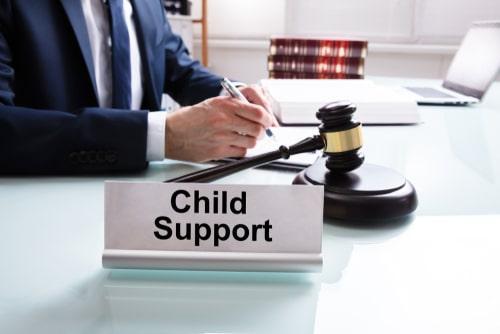Recent Blog Posts
Is Your Ex Hiding Assets? Uncovering Hidden Income and Property in Illinois Divorce
 Unfortunately, it is not uncommon for some spouses to attempt to conceal or undervalue assets and income when divorcing in Illinois in hopes of avoiding their fair share of property division and support obligations. However, Illinois divorce law provides legal mechanisms to uncover hidden marital property and income sources.
Unfortunately, it is not uncommon for some spouses to attempt to conceal or undervalue assets and income when divorcing in Illinois in hopes of avoiding their fair share of property division and support obligations. However, Illinois divorce law provides legal mechanisms to uncover hidden marital property and income sources.
Require Complete Financial Disclosure Upfront
Illinois requires full written disclosure of all assets, debts, incoming revenue streams, and expenses by both spouses at the outset of divorce proceedings. Non-disclosure can result in severe penalties down the road, including overturning of the final property settlement. Insist on transparency from the very beginning.
Subpoena Bank Records and Financial Statements
If you have credible suspicion of undisclosed accounts, assets, or transactions, your divorce attorney can petition the court to subpoena bank statements, credit card records, loan documents, and other financial statements to ferret out hidden information that your spouse may have "forgotten" to mention. Thorough subpoena powers allow financial secrets to come to light.
Securing Fair Child Support When a Parent is Self-Employed in Illinois
 When a self-employed parent gets divorced in Illinois, determining accurate income for purposes of calculating child support can be challenging. However, state laws contain provisions to protect custodial parents and ensure child support orders are fair and representative of a self-employed parent’s true earnings.
When a self-employed parent gets divorced in Illinois, determining accurate income for purposes of calculating child support can be challenging. However, state laws contain provisions to protect custodial parents and ensure child support orders are fair and representative of a self-employed parent’s true earnings.
Courts Can Compel Tax Return Disclosure
Family law courts have the power to compel a self-employed parent to fully disclose recent years’ tax returns to paint an accurate picture of gross business income. Judges can also subpoena personal and business bank statements if questions or discrepancies arise regarding reported income and business revenues.
Watch for Hidden Income Through Business Expenses
One common tactic of self-employed parents is hiding additional income by paying for many personal expenses through their business. This may include reimbursed meals, travel, entertainment, cell phone costs, and more. Courts will often add back these types of personal expenses to the gross income calculation.
Key Insights for High Asset Divorce and Child Custody Battles
 Divorce and child custody disputes involving high asset parties present unique challenges not found in typical cases. Important insights can help individuals navigate these complicated situations. This article provides key information for those involved in high asset divorce and child custody cases.
Divorce and child custody disputes involving high asset parties present unique challenges not found in typical cases. Important insights can help individuals navigate these complicated situations. This article provides key information for those involved in high asset divorce and child custody cases.
Gather Extensive Financial Documentation
Thorough financial records are imperative in high asset divorce cases. Tax returns, bank statements, business financials, property appraisals, and any documentation related to substantial assets should be collected as early as possible. Complete and organized financial information allows for proper analysis and strategy when developing settlement proposals and arguments for equitable distribution. Be sure to gather documentation on all assets, debts, expenses, and any other financial records that may be relevant.
How Can I Get an Order of Protection in Kane County?
 Making the decision to pursue an order of protection against your abuser is a big step that takes a lot of courage. Many survivors of domestic violence make multiple attempts to leave their relationship before successfully breaking free. If you obtain a protection order, your chances of staying free from further abuse are higher. A protection order can be instrumental to escaping. A common barrier to escape people who are experiencing domestic violence face is not having a place to go should they leave. A protection order can solve this problem by forcing your abuser to leave the home and stay away from you. This means that you will be able to continue living at home, even if your house or apartment is in your spouse’s name. Having a safe place to live can give you the chance you need to plan for independence in the future. If you are married to your abuser, you may wish to obtain a protection order before filing for divorce for safety reasons. An attorney can help you establish a safety plan and pursue a protection order.
Making the decision to pursue an order of protection against your abuser is a big step that takes a lot of courage. Many survivors of domestic violence make multiple attempts to leave their relationship before successfully breaking free. If you obtain a protection order, your chances of staying free from further abuse are higher. A protection order can be instrumental to escaping. A common barrier to escape people who are experiencing domestic violence face is not having a place to go should they leave. A protection order can solve this problem by forcing your abuser to leave the home and stay away from you. This means that you will be able to continue living at home, even if your house or apartment is in your spouse’s name. Having a safe place to live can give you the chance you need to plan for independence in the future. If you are married to your abuser, you may wish to obtain a protection order before filing for divorce for safety reasons. An attorney can help you establish a safety plan and pursue a protection order.
3 Indicators That Your Spouse is Hiding Assets
 Marriage is meant to be a relationship of honesty. When you suspect that your spouse has been hiding something, whether it is an investment account or an affair, it can be upsetting. It is fairly common in high-net-worth divorce for one spouse to be concealing assets from the other. In divorce, this is often because the spouse hiding assets is hoping to avoid providing their spouse with their share of the asset. There is also significant misunderstanding regarding what each spouse may and may not do with marital finances. Just because you were married does not mean that your spouse has the right to do anything they please with your joint finances. If you suspect that your spouse is concealing assets that you should rightfully receive a share of in divorce, it is important to mention your concerns to your divorce attorney. In many cases, you may be entitled to a share of the assets your spouse is trying to hide.
Marriage is meant to be a relationship of honesty. When you suspect that your spouse has been hiding something, whether it is an investment account or an affair, it can be upsetting. It is fairly common in high-net-worth divorce for one spouse to be concealing assets from the other. In divorce, this is often because the spouse hiding assets is hoping to avoid providing their spouse with their share of the asset. There is also significant misunderstanding regarding what each spouse may and may not do with marital finances. Just because you were married does not mean that your spouse has the right to do anything they please with your joint finances. If you suspect that your spouse is concealing assets that you should rightfully receive a share of in divorce, it is important to mention your concerns to your divorce attorney. In many cases, you may be entitled to a share of the assets your spouse is trying to hide.
What Factors are Considered in Illinois Alimony Determinations?
 If you have spent most of your adult life as a homemaker, then worrying about how you will provide for yourself should not be a barrier to getting divorced. If you have reached a point where you no longer feel that your marriage is working out, you should have the same freedom a working person would have to leave. Unfortunately, practical financial circumstances sometimes work to keep people - especially women - trapped in a marriage they do not want to be in anymore. Illinois courts have long since recognized both the economic value of a homemaker spouse and the difficulty of reentering the workforce after years away. These are some of the reasons that the legal concept of alimony was developed. In some cases, you may be entitled to continue receiving support payments from your spouse for a length of time after your marriage has ended. Alimony can be a very contentious issue in a divorce, so it is important to involve a lawyer early on if you believe that you will need alimony payments to support yourself after you get divorced.
If you have spent most of your adult life as a homemaker, then worrying about how you will provide for yourself should not be a barrier to getting divorced. If you have reached a point where you no longer feel that your marriage is working out, you should have the same freedom a working person would have to leave. Unfortunately, practical financial circumstances sometimes work to keep people - especially women - trapped in a marriage they do not want to be in anymore. Illinois courts have long since recognized both the economic value of a homemaker spouse and the difficulty of reentering the workforce after years away. These are some of the reasons that the legal concept of alimony was developed. In some cases, you may be entitled to continue receiving support payments from your spouse for a length of time after your marriage has ended. Alimony can be a very contentious issue in a divorce, so it is important to involve a lawyer early on if you believe that you will need alimony payments to support yourself after you get divorced.
How Can Divorced Parents Plan for College Expenses?
 Going to college right after high school is one of the most popular paths young people take today. College is no longer something reserved for only the best academic performers, but rather, something most white-collar employers expect. It can be challenging for any family to cover the complete cost of a college education. Between tuition, textbooks, and room and board, sending your child to college without having them incur student loans can be a challenge. If you and your spouse are getting divorced while your child is still in grade school, you may wonder whether your spouse will still contribute to college expenses. Fortunately, in Illinois, courts can order both parents to contribute what they can towards your child’s educational expenses. In most cases, this can be done as a part of your divorce decree. If you are concerned about paying for college after a divorce, it is best to speak with an attorney to determine what options you and your child may have.
Going to college right after high school is one of the most popular paths young people take today. College is no longer something reserved for only the best academic performers, but rather, something most white-collar employers expect. It can be challenging for any family to cover the complete cost of a college education. Between tuition, textbooks, and room and board, sending your child to college without having them incur student loans can be a challenge. If you and your spouse are getting divorced while your child is still in grade school, you may wonder whether your spouse will still contribute to college expenses. Fortunately, in Illinois, courts can order both parents to contribute what they can towards your child’s educational expenses. In most cases, this can be done as a part of your divorce decree. If you are concerned about paying for college after a divorce, it is best to speak with an attorney to determine what options you and your child may have.
3 Reasons Business Owners Need a Valuation During Divorce
 Dividing a family business during divorce can be complicated. There are often many moving parts required to keep a business running smoothly even as its owners divorce. Your business may own a significant amount of capital or real estate. It may hold valuable contracts with employees - or employees may own shares of the company. All this can make equitably dividing a business among other marital assets challenging. As you begin to consider how your marital assets are to be divided, determining who will keep the business or other property in exchange for the business, it is important to know what your business is actually worth. Often, this is not the only consideration. The business may have been one spouse’s primary trade during the marriage, while the other does not have the experience needed to run it alone. However, in Illinois, both spouses are likely to have been deemed to have contributed to the success of the company even if one spouse was more hands-on. It is important to be represented by an experienced lawyer if your divorce will include a family business.
Dividing a family business during divorce can be complicated. There are often many moving parts required to keep a business running smoothly even as its owners divorce. Your business may own a significant amount of capital or real estate. It may hold valuable contracts with employees - or employees may own shares of the company. All this can make equitably dividing a business among other marital assets challenging. As you begin to consider how your marital assets are to be divided, determining who will keep the business or other property in exchange for the business, it is important to know what your business is actually worth. Often, this is not the only consideration. The business may have been one spouse’s primary trade during the marriage, while the other does not have the experience needed to run it alone. However, in Illinois, both spouses are likely to have been deemed to have contributed to the success of the company even if one spouse was more hands-on. It is important to be represented by an experienced lawyer if your divorce will include a family business.
When Can Digital Evidence Play a Role in Divorce Proceedings?
 In today's digital age, we rely heavily on electronic devices and online platforms for communication, socializing, and storing personal information. As a result, digital evidence has become increasingly relevant in divorce proceedings. Whether this evidence consists of text messages, emails, social media posts, or location data from smartphones, electronic records can provide valuable information that may impact the outcome of a divorce case. Some ways that digital information can affect a divorce include:
In today's digital age, we rely heavily on electronic devices and online platforms for communication, socializing, and storing personal information. As a result, digital evidence has become increasingly relevant in divorce proceedings. Whether this evidence consists of text messages, emails, social media posts, or location data from smartphones, electronic records can provide valuable information that may impact the outcome of a divorce case. Some ways that digital information can affect a divorce include:
Discovering Hidden Assets
Many people use online banking services or financial apps to manage their finances. By analyzing bank statements and transactions made through these platforms, it may be possible to identify suspicious activity or undisclosed accounts. Attempts to hide assets may be brought to the attention of the court, and this may affect decisions about the division of marital property.
Does it Matter Who Files First in an Illinois Divorce?
 When it comes to filing for divorce, many individuals wonder if there are any advantages or disadvantages to being the first one to file. While it may seem like filing first could provide certain advantages, the reality is that, in most cases, it does not significantly impact the outcome of the divorce proceedings. Illinois is a “no-fault” divorce state, which means that the reason why the divorce is taking place, or who filed first, does not typically play a major role in the resulting settlement. However, it is important to consider various factors and consult with a divorce attorney to ensure the best possible outcome for your specific situation.
When it comes to filing for divorce, many individuals wonder if there are any advantages or disadvantages to being the first one to file. While it may seem like filing first could provide certain advantages, the reality is that, in most cases, it does not significantly impact the outcome of the divorce proceedings. Illinois is a “no-fault” divorce state, which means that the reason why the divorce is taking place, or who filed first, does not typically play a major role in the resulting settlement. However, it is important to consider various factors and consult with a divorce attorney to ensure the best possible outcome for your specific situation.
Someone Must Be at Fault, Right?
Regardless of why the divorce is taking place, the only grounds for divorce in Illinois are irreconcilable differences. This means that neither party needs to prove either was at fault for the disintegration of the marriage. Additionally, Illinois law dictates that the court does not favor one party over the other based on who filed first. Rather, the focus is on the equitable division of assets, child custody, and other relevant factors.












